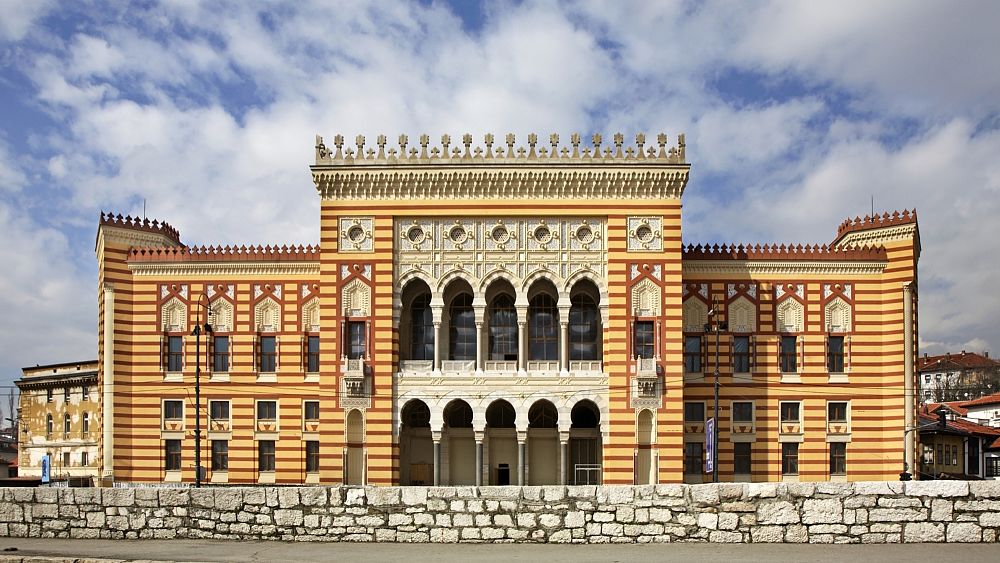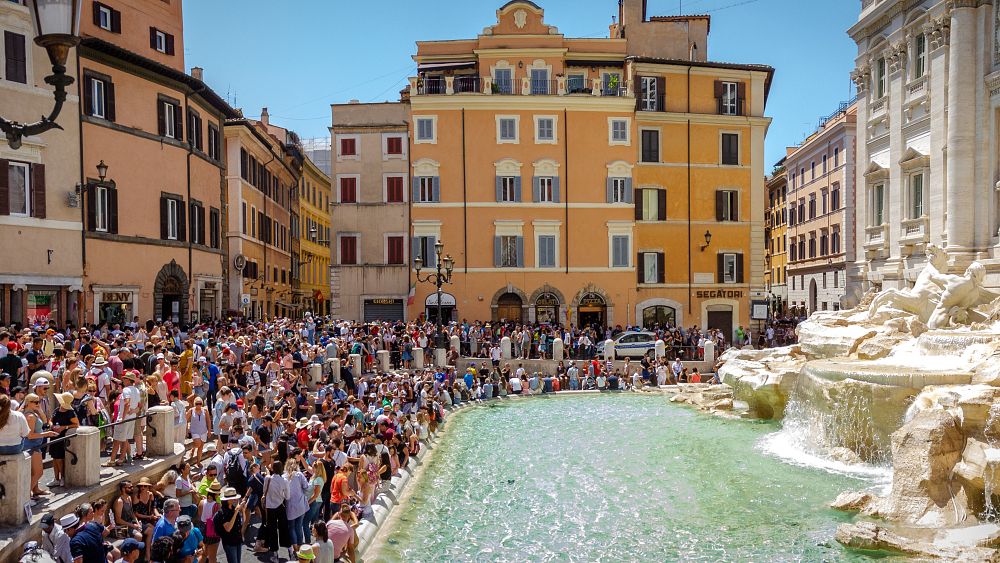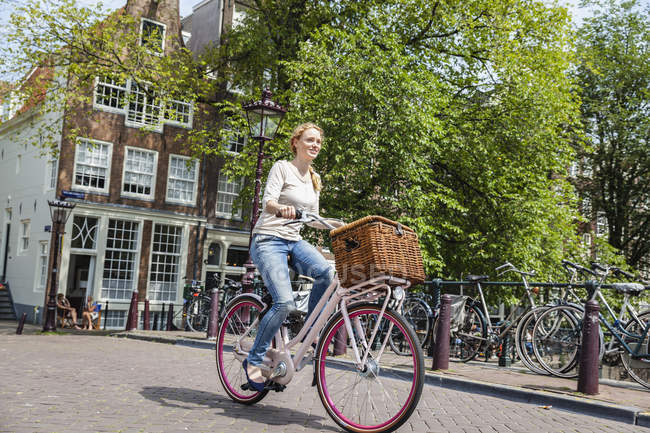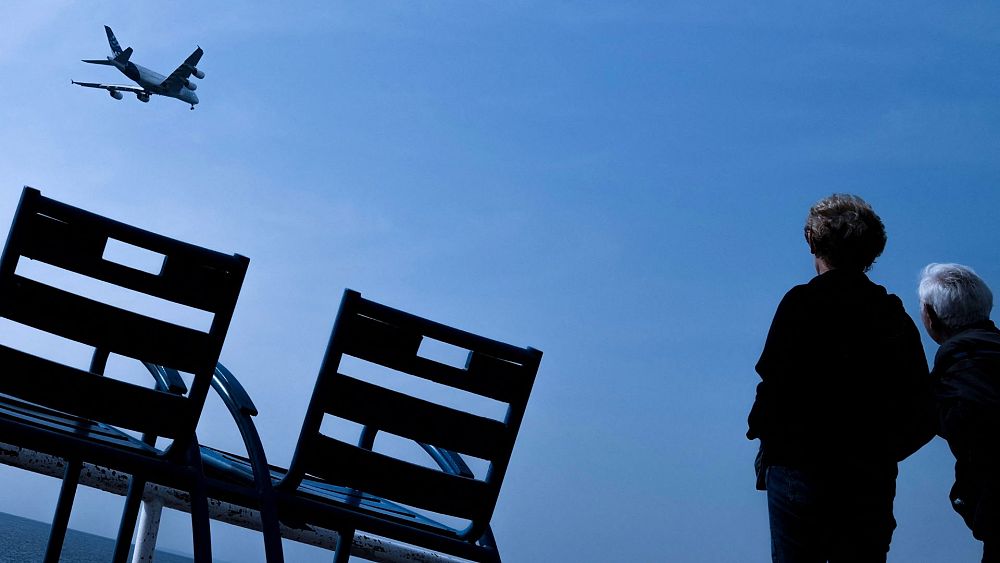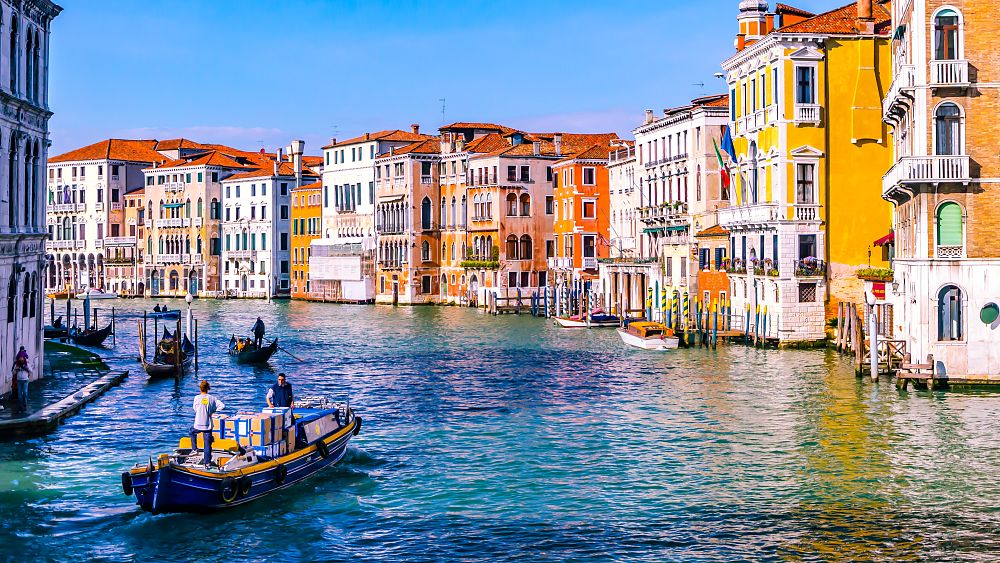The French Transport Minister says he will propose a policy of minimum flight prices to the EU.
The French Transport Minister has said he will propose to the EU the introduction of a minimum price on flights to reduce carbon emissions.
Clément Beaune states that he wants to “fight against social and environmental dumping” and that “a plane ticket for 10 euros is no longer possible”, referring to the fares of low-cost airlines. He said a mega-low ticket price “does not reflect the price to the planet.”
But are more expensive flights the solution to reducing aviation’s carbon footprint?
Frequent flyers are disproportionately responsible for emissions
“Anything that makes airlines pay a fair share of the environmental cost they generate is a good thing,” says Jon Worth, travel expert and founder of the Trains for Europe campaign.
“But we should take care of frequent travelers, and this doesn’t take care of them. It may reduce nice weekends in the city for some people, but it’s not going to stop or reduce this elite of regular travelers”.
In France, 2% of the population take half of the flights, according to a study published by climate campaign group Possible. 15% of the British take 70% of the flights and 8% of the Dutch take 42%.
Overall, 37% of Europeans have never traveled outside their country, according to a 2014 European survey. This statistic does not directly refer to air travel, but it gives an idea of how many Europeans fly.
European train tickets are twice as expensive as flights
On average, the tickets European train tickets are twice as expensive as flights, according to a Greenpeace report from July.
Only 12 lines of train They turned out to be fast, reliable and cheaper than flights, on the 112 most important routes analyzed by Greenpeace.
In May of this year, France banned some national air routes. Flights that could be replaced by train journeys of less than 2.5 hours were affected. But due to certain caveats, such as trains not running late enough at night, the ban only applies to 3 air routes: Paris Orly to Bordeaux, Lyon and Nantes.
Activists and environmental organizations criticized the French Government for considering that the ban is not enough to reduce carbon emissions. the aviation.
Like Beaune’s idea, the fact that trains are not up to par means travelers opt for flights.
“If you want to fly from Paris to Barcelona or Paris to Frankfurt, the train capacity on those routes is too low,” says Jon Worth.
“These types of measures are sticks, but we lack carrots, incentives for people to change their behavior,” laments Jon Worth.
He also points out that Beaune is inaccurate when saying that you can take a flight for 10 euros. The minimum fares for a one-way ticket with all taxes included are usually around 40 and 50 euros.
Solutions: Create a frequent flyer rate, eliminate short connecting flights
In the United Kingdom, a “frequent flying fee” has been debated for years. Tax rates would increase depending on the number of flights made per year. “The rate of the first flight is very low and it goes up with each flight,” explains Worth.
But it is still a “sticky” measure.
In Germany they have been looking for ways to shorten routes national“If you’re traveling from Stuttgart to Singapore, but the only direct flight leaves from Frankfurt, Germany will put that traveler on a train from Stuttgart to Frankfurt,” says Worth.
The problem is that some countries like France still lack a connected system. Only TGV INOUI high-speed trains can connect with Air France flights. “In Germany, you can connect a Deutsche Bahn train with an EasyJet flight,” says Worth.
Will EU countries support the Beaune proposal?
“It’s a very French move, very Macron. Tactically speaking, it’s not the best solution,” says Worth. “Germany won’t be very enthusiastic because of its liberal transport minister; Spain may be more interested; the Netherlands too; apart from them, it’s hard to say,” she continues.
Ryanair’s CEO has been very hostile to similar measures, comparing them to a “North Korea-like fare control” when Austria announced in June 2020 that it wanted to ban airfares from being lower than taxes and fees. real, that is, an average of 40 euros per flight in this country.
Worth fears that the French Transport Minister is more seeking publicity than real change.
“The international publicity of the ban on short flights in France was enormous and useless. But it gave Macron good international publicity, I am afraid that Beaune is doing the same. That the real application will have the same impact,” he assures.
Image:Getty Images








